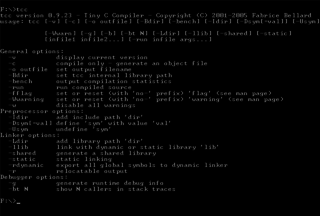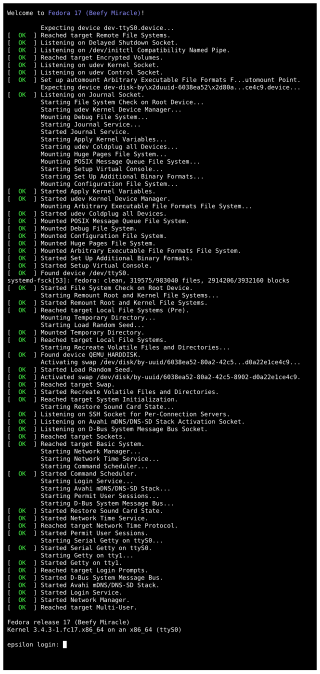
Debian, also known as Debian GNU/Linux, is a free and open source Linux distribution, developed by the Debian Project, which was established by Ian Murdock in August 1993. Debian is one of the oldest operating systems based on the Linux kernel, and is the basis for many other Linux distributions.

GNU is an extensive collection of free software, which can be used as an operating system or can be used in parts with other operating systems. The use of the completed GNU tools led to the family of operating systems popularly known as Linux. Most of GNU is licensed under the GNU Project's own General Public License (GPL).
dpkg is the software at the base of the package management system in the free operating system Debian and its numerous derivatives. dpkg is used to install, remove, and provide information about .deb packages.
The GNU C Library, commonly known as glibc, is the GNU Project implementation of the C standard library. It provides a wrapper around the system calls of the Linux kernel and other kernels for application use. Despite its name, it now also directly supports C++. It was started in the 1980s by the Free Software Foundation (FSF) for the GNU operating system.
deb is the format, as well as filename extension of the software package format for the Debian Linux distribution and its derivatives.
Computer operating systems based on the Linux kernel are used in embedded systems such as consumer electronics, in-vehicle infotainment (IVI), networking equipment, machine control, industrial automation, navigation equipment, spacecraft flight software, and medical instruments in general.

Git is a distributed version control system that tracks versions of files. It is often used to control source code by programmers who are developing software collaboratively.
In software development, distributed version control is a form of version control in which the complete codebase, including its full history, is mirrored on every developer's computer. Compared to centralized version control, this enables automatic management branching and merging, speeds up most operations, improves the ability to work offline, and does not rely on a single location for backups. Git, the world's most popular version control system, is a distributed version control system.

Mercurial is a distributed revision control tool for software developers. It is supported on Microsoft Windows, Linux, and other Unix-like systems, such as FreeBSD and macOS.

The Tiny C Compiler, TCC, tCc, or TinyCC is an x86, X86-64 and ARM processor C compiler initially written by Fabrice Bellard. It is designed to work for slower computers with little disk space. Windows operating system support was added in version 0.9.23. TCC is distributed under the GNU Lesser General Public License.
Squashfs is a compressed read-only file system for Linux. Squashfs compresses files, inodes and directories, and supports block sizes from 4 KiB up to 1 MiB for greater compression. Several compression algorithms are supported. Squashfs is also the name of free software, licensed under the GPL, for accessing Squashfs filesystems.

Linux is a family of open-source Unix-like operating systems based on the Linux kernel, an operating system kernel first released on September 17, 1991, by Linus Torvalds. Linux is typically packaged as a Linux distribution (distro), which includes the kernel and supporting system software and libraries—most of which are provided by third parties—to create a complete operating system, designed as a clone of Unix and released under the copyleft GPL license.

The history of free and open-source software begins at the advent of computer software in the early half of the 20th century. In the 1950s and 1960s, computer operating software and compilers were delivered as a part of hardware purchases without separate fees. At the time, source code—the human-readable form of software—was generally distributed with the software, providing the ability to fix bugs or add new functions. Universities were early adopters of computing technology. Many of the modifications developed by universities were openly shared, in keeping with the academic principles of sharing knowledge, and organizations sprung up to facilitate sharing.

The Linux kernel is a free and open source, Unix-like kernel that is used in many computer systems worldwide. The kernel was created by Linus Torvalds in 1991 and was soon adopted as the kernel for the GNU operating system (OS) which was created to be a free replacement for Unix. Since the late 1990s, it has been included in many operating system distributions, many of which are called Linux. One such Linux kernel operating system is Android which is used in many mobile and embedded devices.

According to the Free Software Foundation Latin America, Linux-libre is a modified version of the Linux kernel that contains no binary blobs, obfuscated code, or code released under proprietary licenses. In the Linux kernel, those types of code are mostly used for proprietary firmware images. While generally redistributable, they do not give the user the freedom to audit, modify, or, consequently, redistribute their modified versions. The GNU Project keeps Linux-libre in synchronization with the mainline Linux kernel.

systemd is a software suite that provides an array of system components for Linux operating systems. The main aim is to unify service configuration and behavior across Linux distributions. Its primary component is a "system and service manager" — an init system used to bootstrap user space and manage user processes. It also provides replacements for various daemons and utilities, including device management, login management, network connection management, and event logging. The name systemd adheres to the Unix convention of naming daemons by appending the letter d. It also plays on the term "System D", which refers to a person's ability to adapt quickly and improvise to solve problems.
OpenWrt is an open-source project for embedded operating systems based on Linux, primarily used on embedded devices to route network traffic. The main components are Linux, util-linux, musl, and BusyBox. All components have been optimized to be small enough to fit into the limited storage and memory available in home routers.

Banana Pi is a line of single-board computers produced by the Chinese company Shenzhen SINOVOIP Company, its spin-off Guangdong BiPai Technology Company, and supported by Hon Hai Technology (Foxconn). Its hardware design was influenced by the Raspberry Pi, and both lines use the same 40-pin I/O connector.

ROCm is an Advanced Micro Devices (AMD) software stack for graphics processing unit (GPU) programming. ROCm spans several domains: general-purpose computing on graphics processing units (GPGPU), high performance computing (HPC), heterogeneous computing. It offers several programming models: HIP, OpenMP, and OpenCL.

The Software for Open Networking in the Cloud or alternatively abbreviated and stylized as SONiC, is a free and open source network operating system based on Linux. It was originally developed by Microsoft and the Open Compute Project. In 2022, Microsoft ceded oversight of the project to the Linux Foundation, who will continue to work with the Open Compute Project for continued ecosystem and developer growth. SONiC includes the networking software components necessary for a fully functional L3 device and was designed to meet the requirements of a cloud data center. It allows cloud operators to share the same software stack across hardware from different switch vendors and works on over 100 different platforms. There are multiple companies offering enterprise service and support for SONiC.











